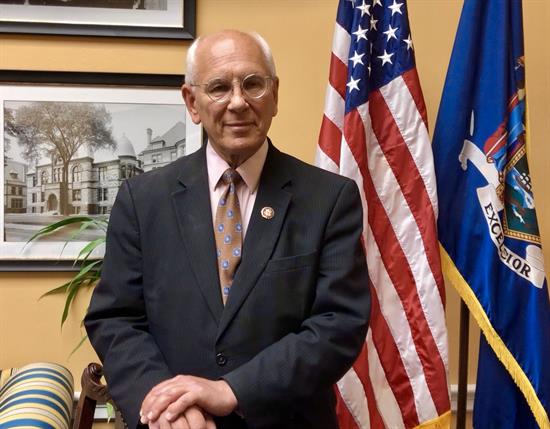- Home
- About
-
Constituent Services
- Academy Nominations
- Community Project Funding
- Congressional Art Competition
- Congressional App Challenge
- Congressional Commendation
- Event Invitation
- Grants
- Help with a Federal Agency
- Internships
- IRA Clean Energy Consumer Benefits
- Know Your Rights: Immigration
- Request a Meeting
- Request Surplus Books
- Presidential Greeting
- Visit Washington D.C.
- Issues & Legislation
- News
- 20th District
- Contact

Press Releases
Tonko, Turner Launch Inquiry to Ensure Access to Addiction Treatment for Opioid Use DisorderCongressmembers sent letters to healthcare stakeholders requesting insight on their actions and priorities post MAT Act to increase access to buprenorphine for addiction treatment
Albany,
October 16, 2024
Tags:
Addiction & Recovery
ALBANY, NY — Representatives Paul D. Tonko (D-NY) and Mike Turner (R-OH) today announced that they have sent inquires to dozens of hospitals, insurance plans, pharmacies, pharmacists, and providers aimed at gathering information on their existing actions and plans to eliminate barriers for accessing medications for opioid use disorder (MOUD). The letters are intended to gain insight into the successes and barriers that have arisen following the implementation of the Congressmembers’ law, the Mainstreaming Addiction Treatment (MAT) Act. That bill, which was signed into law in early 2023, aims to expand access to the proven addiction treatment buprenorphine by increasing the number of medical professionals who can prescribe buprenorphine for opioid use disorder from 130,000 to 1.8 million. With this barrier eliminated, work continues to implement the MAT Act to the fullest extent and have addiction treatment accessible in every community. This goal will require many communities, providers and interests to step up and lead. “For the millions of Americans battling substance use disorder, having access to proven, affordable treatment can mean the difference between life and death,” Congressman Tonko said. “I worked tirelessly to pass the Mainstreaming Addiction Treatment (MAT) Act into law to open the doors of access to the proven addiction treatment, buprenorphine. We must use every tool possible to realize the dream of the MAT Act. I look forward to hearing the responses and insights from these healthcare stakeholders about how we can best move forward to ensure that those on the path to recovery have the treatment they need and deserve.” “Passing the MAT Act into law last Congress was a crucial step forward in our country's battle against opioid addiction and substance use disorder,” said Congressman Turner. “Too many Ohio families have been ripped apart by the opioid epidemic that has swept over the nation. The MAT Act offers greater access to life-saving care to those struggling with addiction, and we are already seeing positive results as drug overdose deaths dropped by 10% in 2023. However, our work is not finished. We must ensure this progress continues, and it is my hope that these healthcare providers can offer greater insight for Congress to combat opioid addiction and help save lives.” As co-chair of the Addiction, Treatment, and Recovery Caucus, Tonko has long spearheaded federal efforts to address the overdose epidemic and expand addiction treatment. He, along with Rep. Turner also champion the Reentry Act, bipartisan legislation that empowers states to restore access to healthcare, including addiction and mental health treatment, through Medicaid for incarcerated individuals up to 30 days before their release. Most recently, Tonko introduced the BUPE for Recovery Act, legislation that would require the Administrator of the Drug Enforcement Administration (DEA) to temporarily exempt buprenorphine from the Suspicious Orders Report System (SORS) for the remainder of the opioid public health emergency. 40 letters have been sent to healthcare providers throughout the nation, including: UnitedHealth Group; The Cigna Group; Kaiser Permanente; Elevance Health; Centene Corporation; Blue Cross and Blue Shield; CVS Health/Aetna; Molina Healthcare; Health Care Services Corporation; Highmark Health; Humana; American Medical Association; American Nurses Association; American College of Emergency Physicians; American Academy of Family Physicians; American Academy of Pediatrics; American Academy of Physician Assistants; American College of Obstetricians and Gynecologists; National Association of Chain Drug Stores; Express Scripts; Blink Health; CVS Health; Walgreens Boots Alliance, Inc.; Health Mart; Good Neighbor Pharmacy; Rite Aid Corporation; Albertsons Companies, Inc.; Safeway; The Vitamin Shoppe; Kroger; Publix Super Markets, Inc.; Costco; Walmart; American Hospital Association; American Pharmacists Association; National Community Pharmacists Association; ASHP; and National Association of Boards of Pharmacy The full list of healthcare providers and attached letters can be found HERE. |
